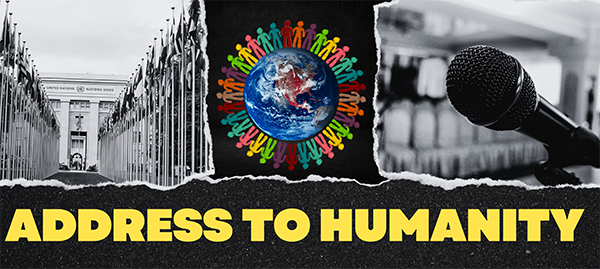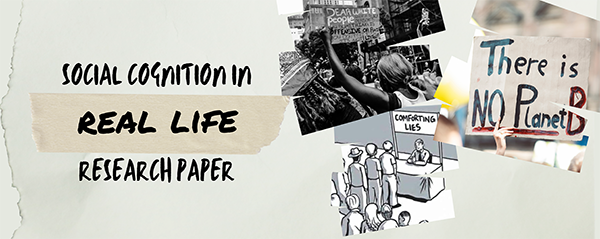Teaching Philosophy
①
Capability: Fostering a Growth Mindset
Foster students’ belief in their capability to grow through sustained effort
Central to my teaching is instilling in students a growth mindset–the belief that intellectual abilities expand through strategic effort over time. To achieve this, I aim for a classroom culture that normalizes failure as integral to the learning process. I openly share my own experiences with setbacks, demonstrating that everyone encounters and can overcome obstacles. This approach helps create an environment of intellectual humility with a focus on mastery rather than judgment and perfection. Assessment in my courses is designed as an ongoing process throughout the term, rather than relying on high-stakes final evaluations. In all courses I use a scaffolded structure where major projects are broken into milestones with regular formative feedback. Students have checkpoints throughout the course to practice skills, receive targeted feedback, and refine their work before their final summative assessment. To promote metacognitive skills, I incorporate regular low-stakes assignments such as concept quizzes and reflection essays which encourage students to build awareness about their own learning strategies, knowledge gaps, and areas for growth. I teach students how to engage with feedback (either from myself or their peers) with a reflective follow-up assignment where they identify key areas to focus on and strategize clear action plans to apply the feedback. This process helps students internalize a productive mindset of seeking critique to guide mastery of the course content.
②
Lifelong Skills: Engaging as Critical, Self-Directed Learners
Teach students lifelong skills to critically engage with information
Given the popularity of psychology courses among non-psychology majors, I prioritize teaching in a way that promotes skills and knowledge transfer across disciplines. While content mastery is expected, I also help students develop habits of skillful, self-directed learning. Class activities emphasize analyzing concepts through varied lenses, synthesizing disparate ideas, deconstructing underlying logic and evidentiary bases, and communicating takeaways persuasively. For example, In my Social Cognition course, I guide students through contrasting theories, probing the reasoning behind each perspective's assumptions and interpretations of data. When teaching Environmental Psychology, I provide students with the historical context of the field early in the course, then promote discussion on how this background may have shaped the questions being asked in each following topic we cover. The goal is for students to internalize transferable strategies for breaking down complex topics and reconstructing their own nuanced understanding. To awaken students' intrinsic curiosity, I create opportunities for them to explore concepts intersecting with their pre-existing passions and experiences. A popular capstone assessment in my Social Cognition course is the "Social Cognition in Real Life" paper, which allows students to apply course concepts to a topic relevant to their personal background and interests. Students have chosen diverse topics such as domestic violence, vaping addiction, veganism, and international conflicts, demonstrating the broad applicability of course concepts.
③
Belonging: Creating an Inclusive Learning Environment
Ensure all students feel they belong
Establishing an inclusive classroom culture underpins my teaching from syllabus creation through day-to-day instruction. My syllabi include both flexible due dates for low-stakes formative assessments and firm deadlines to promote accountability, accommodating students' diverse life circumstances while fostering time management skills. Clear assessment rubrics make expectations for quality work transparent and consistent, mitigating potential biases in grading. I purposefully select and create course materials that adhere to universal design standards, promoting equitable access without physical or financial barriers. This includes using open-source texts and providing captioned recordings of lectures. Examples, case studies, and multimedia content intentionally represent varied identities, backgrounds, and perspectives. For instance, I have included topics exploring research on environmental justice issues and unconscious biases impacting LGBTQ+ communities. From the first day of class, we co-create community guidelines articulating shared norms for respectful, productive dialogue amongst peers with differing viewpoints. In each lecture, I incorporate structured opportunities for students to learn from their peers through small group discussions and team-based activities, providing supportive spaces to openly share perspectives before bringing ideas to the whole class. Where possible, I offer flexible pathways for students to demonstrate their learning. For example, final assessments in my courses can take the form of a research paper, an informational website, or a podcast, allowing students to leverage their unique strengths and interests.
④
Growth as an Educator: Continual Improvement Through Feedback
I also believe in continual growth as an educator
As an educator, I am committed to ongoing growth and improvement. I openly acknowledge to my classes that my expertise emerges through sustained effort and feedback, not as a permanent status. During the first few weeks of each course, I solicit anonymous feedback surveys, empowering students to respectfully surface any concerns about the classroom environment or my instructional methods. After each course, I reflect on areas where comprehension seemed to spike or wane, using these insights to inform updates to content sequencing, assignment weighting, activities, and materials for future iterations. In addition, I actively engage in professional development to integrate evidence-based teaching strategies into my skill-set. This includes attending workshops, conferences, and journal clubs exploring topics like inclusive pedagogical methods, applying findings from the science of learning and cognition to teaching, and leveraging technology, such as AI, to enhance engagement and accessibility.
Ultimately, I see my role as demystifying the learning process itself. By embodying curiosity, diligence, and eagerness to incorporate feedback, I strive to guide students in developing the vital habits of skilled, self-directed lifelong learners and critical thinkers capable of not just absorbing, but shaping our world's evolving knowledge and discourses.
Courses

Tought: Fall 2023; Fall 2024
Course Description
This course gives an overview of key topics in Environmental Psychology including conservation behavior, attitudes towards the environment, human relationships with the environment, and the effects of the environment on mental health. We will also explore how these topics are researched by environmental psychologists. The course involves a final project where you will use an existing data set to answer a hypothesis associated with the topics covered in the course and write these results up into an APA-style research paper.
Example Assessments
Capstone Research Project
The aim of this assignment is to.....
It is delivered...
Download Assignment Instructions
Reflection Journal
The aim of this assignment is to.....
It is delivered...
Download Assignment Instructions
Teaching Evaluations

Tought: Summer Session 1 2023
Course Description
During our next five weeks together, we will be exploring how we think about ourselves, others, and our interactions. We will be learning about, discussing, and critiquing social cognition through early influential studies as well as current theories and research. We will also explore how social cognition can give us insight into our everyday experiences, current events, and be applied to societal issues.
Example Assessments
Capstone Research Project
The final assessment of this course is a research project where students integrate concepts they have learned into real-world scenarios.
The goal of this final project is for students to:
- Illustrate social cognition concepts and theories in real-world contexts (in your own life and/or current events).
- Identify research that relates to these real-world examples.
- Communicate research in a clear and precise manner.
There are three options students can take with this project:
Address to Humanity |
Annotated Infographic |
Social Cog in Real Life Paper |
 |
 |
 |
Deliver your research project as a 5 minute presentation |
Design an infographic that illustrates your research project along with 2-3 pages of annotations |
Write a 3-page APA style paper for your research project |
Peer Review & Reflection Assessment
The aim of this assignment is to.....
It is delivered...
Download Assignment Instructions



 Website created with
Website created with